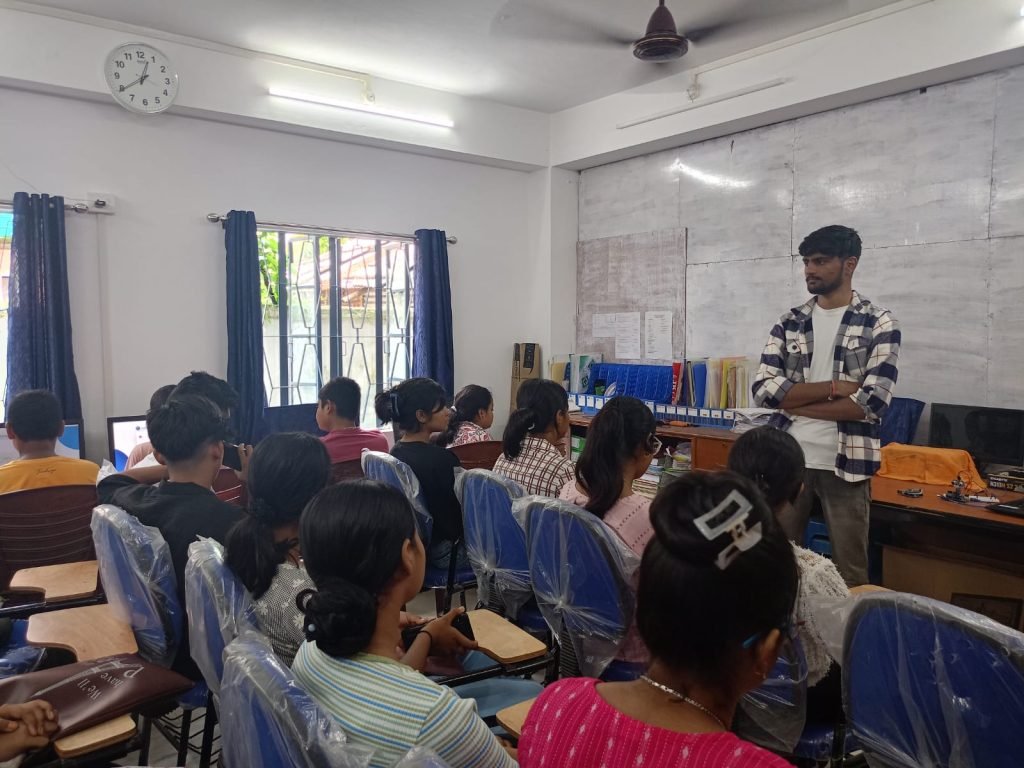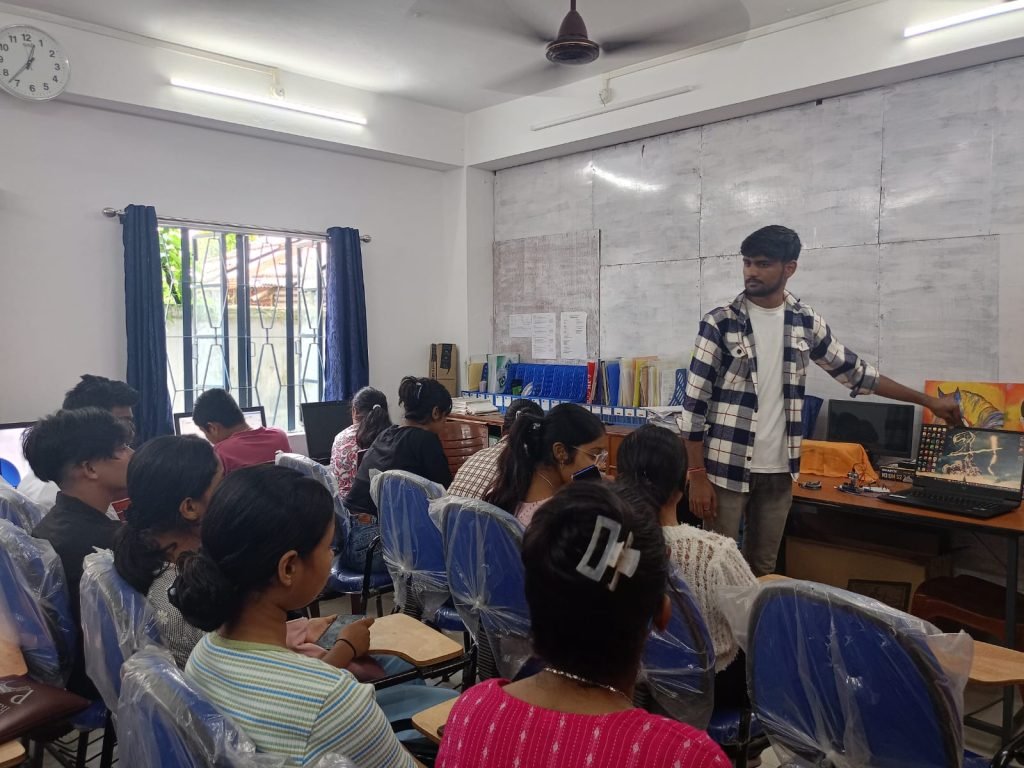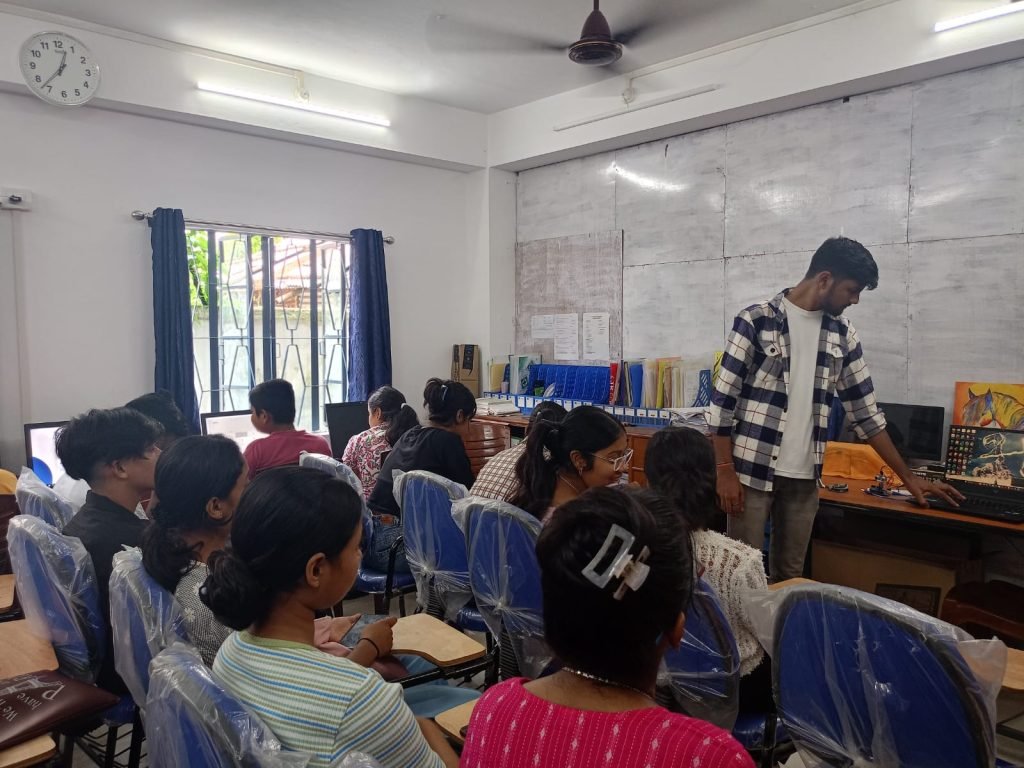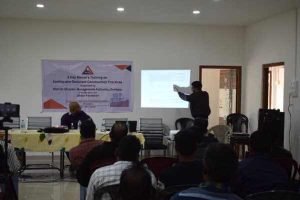As a first-year B.Tech student in Electronics and Communication Engineering at Lovely Professional University, I had the opportunity to undertake a 12-day (36-hour) internship/community development program at Edupur Society, Tribeni Circle, Tezpur, an NGO focused on education. This is a presentation report for the same.
–By Yuvraaj Yadav
My Role: Spreading Awareness
Electronics and Communication: During my internship, my primary responsibility was to spread awareness about the importance of the electronics and communication industry.
Engaging Presentations: I conducted interactive sessions and presentations to educate students and community members about the field.
Hands-on Demonstrations: I also provided hands-on demonstrations to showcase the practical applications of electronics and communication technologies.
1st day of the Workshop on 13th July 2024
UPSC & Electronics and Communication
Electronics and Communication in UPSC
The field of Electronics and Communication Engineering (ECE) is an important optional subject for the Union Public Service Commission (UPSC) examination, particularly in the Engineering Services Examination (ESE) and sometimes chosen as an optional subject in the Civil Services Examination (CSE). Here’s an overview:
1. Engineering Services Examination (ESE)
Preliminary Examination:
Paper I: General Studies and Engineering Aptitude (common for all branches).
Paper II: Specific to Electronics and Telecommunication Engineering (ECE).
Main Examination:
Paper I & II: Both papers are specific to ECE, covering various subjects in detail.
Interview: Candidates who clear the mains are called for a personality test/interview.
2. Civil Services Examination (CSE)
Optional Subject: ECE can be chosen as an optional subject. The syllabus is broadly aligned with undergraduate studies in Electronics and Communication Engineering.
By systematically preparing and focusing on understanding the core concepts, candidates can perform well in Electronics and Communication Engineering as part of the UPSC examinations.
Importance of Electronics and Communication
Technological Advancements: The electronics and communication industry has been at the forefront of technological innovation, driving progress in various sectors.
Connectivity and Communication: Advancements in electronics and communication have revolutionized how we connect and exchange information globally.
Quality of Life Improvements: These technologies have significantly enhanced the quality of life, from healthcare to education and beyond.
Economic Opportunities: The industry offers numerous career prospects and contributes to the economic growth of both individuals and communities.
Past Changes and Developments

Analog to Digital: The transition from analog to digital technologies revolutionized the industry, enabling more efficient and versatile communication systems.
Miniaturization: The miniaturization of electronic components has led to the creation of smaller, more portable, and more powerful devices.
Wireless Communication: The development of wireless communication technologies has transformed how we access and share information, breaking down geographical barriers.
2nd day of the Workshop on 14th July 2024
Interaction with Students & Arduino-Sonar Demonstration

Current Scenario and Future Scope
Emerging Technologies: The industry is witnessing the rapid development of cutting-edge technologies, such as the IoT, artificial intelligence, and 5G networks.
Sustainability and Efficiency: There is a growing focus on developing more energy-efficient and environmentally friendly electronics and communication systems.
Societal Impact: The industry’s advancements continue to transform various sectors, including healthcare, education, transportation, and beyond.
Career Opportunities: The future holds numerous exciting career paths in fields like electronics design, software engineering, and network administration.
Demonstration: Building an Arduino Sonar
Components: I demonstrated the process of building an Arduino-based sonar device using various electronic components.
Programming: I guided the students through the coding and programming required to make the sonar device fully functional.
Practical Application: The students had the opportunity to observe the sonar device in action, showcasing its practical applications in various domains.
Microcontrollers Showcase


Arduino Uno: A popular and versatile open-source microcontroller board, widely used for a variety of electronics projects.
ESP32: A powerful microcontroller with built-in Wi-Fi and Bluetooth capabilities, suitable for IoT and wireless applications.


Conclusion and Key Takeaways
Enriching Experience: The internship at Edupur Society was a truly enriching experience, allowing me to share my passion for electronics and communication.
Community Engagement: I had the chance to engage with the local students from and inspire them about the endless possibilities in this field.
Personal Development: The internship also contributed to my own personal growth, as I honed my communication and teaching skills.



